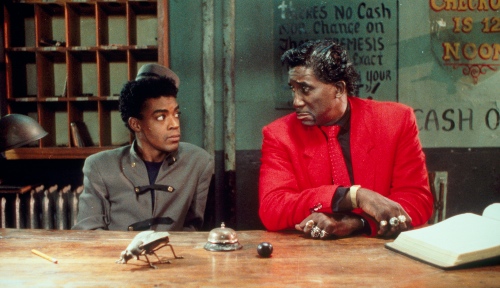Sorry, it’s been a while. But it’s 8.37 on a Saturday morning, I’m watching Jean Vigo’s ‘A Propos de Nice’ (a dialogue-free short film about French people being happy, any five minutes of which are better than ‘Inception’ – which is already very good, but Vigo doesn’t need CGI to turn a Gallic city upside down), and for some reason I want to blog again.
No big promises – but if you join me in the comments, I’ll be grateful and try to write more often.
My thoughts this weekend:
The proposed North Carolina constitutional amendment to ban recognition of same-sex partnerships is antithetical to the best of what the US stands for in terms of personal liberty and the pursuit of happiness; it is opposed to the spirit of compassion and respect and love for neighbor that are at the heart of the Christian teaching that everyone who supports the amendment cites as their reason for doing so; even while its proponents believe (or say they believe) the amendment protects their own marriages, if passed it will actually actively hurt people who only want to be allowed to have a measure of protection and recognition for the love they share, and therefore it follows will in reality undermine community as the foundation of society; it continues a tragic tradition of fear being used to oppress people who are already marginalized; it serves no positive purpose and in fact reinforces the social structural realities that lead to stories such as this one.
Groups like Believe Out Loud, Equality NC, and Faith in America are good resources for information and how to take action, but I’d want to emphasize one thing that is often, by my sights, neglected in anti-homophobia/pro-humanity activism: Genuine dialogue. I changed my mind about theology and sexuality partly through relationships with people wiser and more experienced than I, partly through academic reflection, and partly through my own experience. This seems to me to fit with the Wesleyan quadrilateral of engaging scripture, reason, tradition and experience as we seek to discern what is right, among other historic Christian ways of interpreting the world. It is not a betrayal of Christian principle to be open to dialogue with people with whom you disagree. It has a long and noble history. I’m happy to talk with anyone who wants to know where I stand, what I think, and why I believe that a serious conversation about sexuality and spirituality is not just important for the sake of addressing the injustice of inequality and homophobia, but for the future of peace on earth. I’ll write more about this later; for now, I want to invite a dialogue; and to ask you to seriously consider how we might persuade proponents of the anti-LGBTQ amendment that it is actually in their interests to vote against it.




